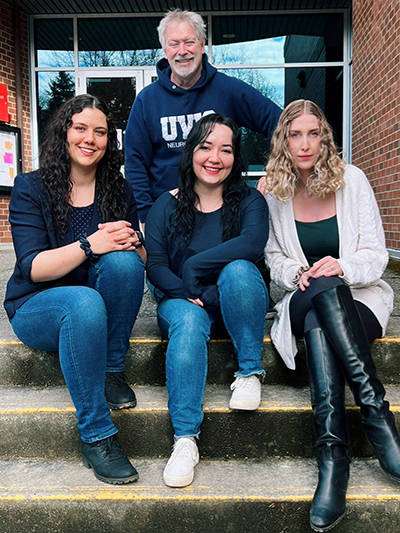CIHR project grant continues research on affects of prenatal marijuana and alcohol exposure

Dr. Brian Christie has received $841,500 over five years from the Canadian Institutes of Health Research (CIHR) to continue his research on how prenatal exposure to alcohol and cannabis affects the developing brain.
Along with co-applicants Dr. Jennifer Thomas (San Diego State University) and Dr. Catharine Winstanley (University of British Columbia), Christie is exploring how prenatal exposure to marijuana and alcohol affects the structure and function of the offspring’s hippocampus, a region of the brain associated with learning and memory. They also aim to understand if exposure to these substances affects brain development in a sex-specific fashion, and if it alters the development of sexually dimorphic brain regions (i.e., parts of the brain that differ between sexes).
The results of this research will also help us understand if prenatal exposure to marijuana and alcohol could potentially lead to addictive behaviours later in life.
As cannabis restrictions relax across North America, a growing number of young adults report using marijuana and about half of those individuals report simultaneously using alcohol while smoking or vaping—statistics that include pregnant women. Christies suggests this may be in part because “cannabis is often viewed as either safe or therapeutic during pregnancy and health warnings remain vague” and that alcohol consumption during pregnancy remains a concern, despite extensive media campaigns warning of its ill effects.
“Substance use can also be common in individuals facing health and social challenges, particularly when these challenges are further compounded by the psychological stress associated with pregnancy,” he adds. “Moreover, substance use issues have grown as a result of the recent pandemic, increasing the relevance and priority of this work.
Two of Christie’s PhD students, Erin Gräfe and Hannah Reid (Division of Medical Sciences, UVic), as well as a visiting PhD student, Melanie Lysenko-Martin (Winstanley Lab, UBC), are trainee co-applicants for this grant and the funding will support part of their thesis work. “I think it’s so important to give trainees opportunities like this and to celebrate this type of success,” say Christie.
Previous funding for this work include a CIHR catalyst grant, a CIHR project grant, and a NSERC RTI grant. Christie used later to purchase a vapor administration system, which is a unique resource in British Columbia.
Image:
Back: Dr. Brian Christie
Front (L-R): Melanie Lysenko-Martin (Winstanley Lab, UBC), Erin Gräfe and Hannah Reid (both Christie Lab, Division of Medical Sciences, UVic)
